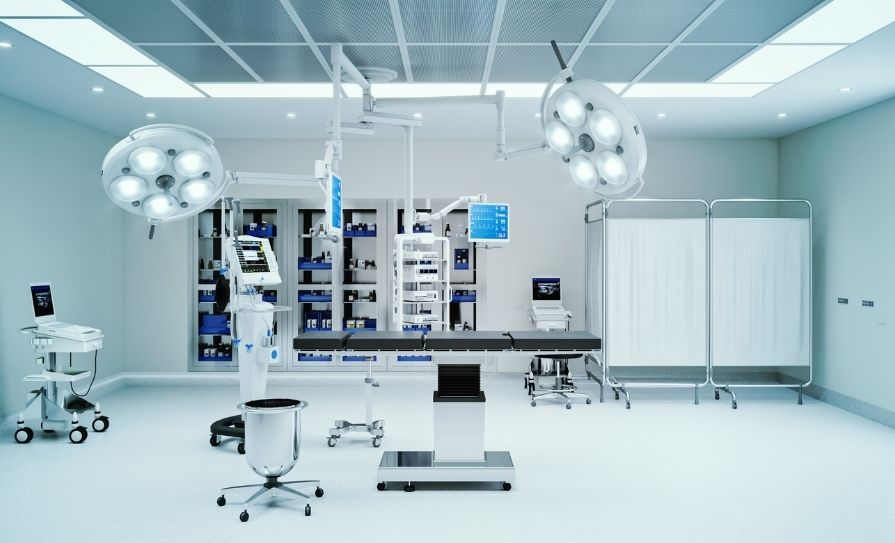Like many students before starting medical school, I glamorised the idea of being a doctor in my head. Thinking I would attain the skills and knowledge on-tap to be able to diagnose and treat people and disease at the drop of a hat, I was brimming with excitement and anticipation. I can say with certainty that the reality of medical school has not always been kind to my initial enthusiasm.
When one considers the challenges that medical students face in a modern education system; yes there are the academic concerns — a gargantuan workload, relentless exams, continuous assessments. Then, the personal struggles — self-doubt, confidence in ability, anxiety, concurrent medical conditions, and work-life balance.
However, when I think of challenges, my mind is cast back to long before I even entered medical school. For me, as a graduate-entry student, I have had to overcome the GAMSAT. I say ‘overcome’, and not pass, because in my humble but experienced opinion (I sat the GAMSAT a grand total of four times), it is not a measure of your success in medical school, and even less so your potential competence as a qualified doctor. At €330+ a pop, it is far from cheap — and that’s before we even start to talk about the expensive revision courses and materials available. For many, this may not be an issue, but for the significant minority, this acts as an immediate buffer and financial barrier before even starting medical school. This, of course, all feeds into a topic that I am very personally passionate about, which is access to medical education.
A family affair
Medicine is still very much a profession dominated by the middle-class. It is expected that you can pay for tuition fees, laptops, books, and even drop €250 on a vaccination programme that you may have already received. That’s without even considering the cost of living during a full-time course, with rent, food, and bills to pay. I am very proud to come from an extremely supportive working-class family and area in Ballyphehane, Cork. I am the first in my family to enter formal third-level education and complete an academic honours degree. Studying a condensed medical degree in four years is a challenge in itself, even more so when I have maintained a job, working between 10-to-20 hours a week during the entirety of medical school and during every Christmas, summer and Easter breaks, to support myself. This obviously subtracts from valuable study time, but also the equally valuable recreational time.
Then we get to the clinical years and the onus is on us to organise short-let accommodation and provide our own transport as we rotate through the mid west on placement. I am fortunate enough to have grown up in a city and did not require a car.
We are told to “get a car from your parents for Christmas” and that “it’s an investment”. Yes, whilst driving is an absolute life skill, the combined cost of a car, tax and insurance is a challenge to first-timers like myself. I am lucky enough to have empathetic friends and classmates who were more than obliging to help me get around when I needed to. The point is that it is expected of you as a medical student, outside of studies. You are assumed to be from a wealthy background funded by the ‘Bank of Parents’. On my first day of medical school, we were told that medicine runs in families. At the time, this seemed like a harmless comment. I soon realised this manifests in advantages with securing clinical electives and valuable advice. In the competitive scene of medicine, it can often be about who you know. This is not the case for all, but is unfortunately considered the norm.
I was naïve to think when I entered medical school that an endless stream of loans would see me through. Thankfully, I was in receipt of a scholarship from the University of Limerick Graduate-Entry Medical School; guided by the virtue that those who enter medical school should not be unable to take up their offer of a place on the grounds of financial barriers. While eternally grateful that such a measure is in place, I have nonetheless incurred significant debt in the duration of medical school.
Then there is the issue of extra-curricular activity. While I do believe extra-curricular activity is important and even fun, the challenge presents itself when it becomes part of a hidden curriculum, the ultimate balancing act of managing committee roles, rotational placements, and academic commitments.
Association of Medical Students of Ireland
I have always been a person who likes to be involved in areas that I care about and in the current climate of the Irish health service, activism and advocacy have never been more important.
I am the current President of the Association of Medical Students of Ireland (AMSI), which is a national organisation that aims to represent the views of medical students across the seven medical schools on the island. AMSI produces advocacy, policy and campaign works under the domains of Public Health, Medical Education, Sexual Health and Human Rights. AMSI engages medical students on a wide range of issues, both nationally and internationally. For example, we adopted policy last April in official support of the referendum on the Eighth. Last February, we pioneered a campaign called ‘Humans of Medical Education’ during Access Week, which engaged medical students across Ireland to share the barriers they faced whilst accessing medical school and how these barriers have affected them during their time in medical education.
It is a challenging time to be a medical student. Medical education is plagued with fear-based teaching tactics, a struggling health service, and an exceptionally stressful working environment. However, with dedicated people, continuing advances in both scientific and clinical research, and few other professions that can provide you with such unique opportunities, it is also an exhilarating time.












Leave a Reply
You must be logged in to post a comment.